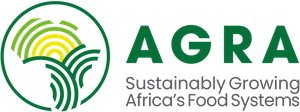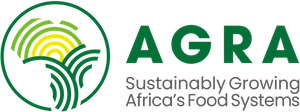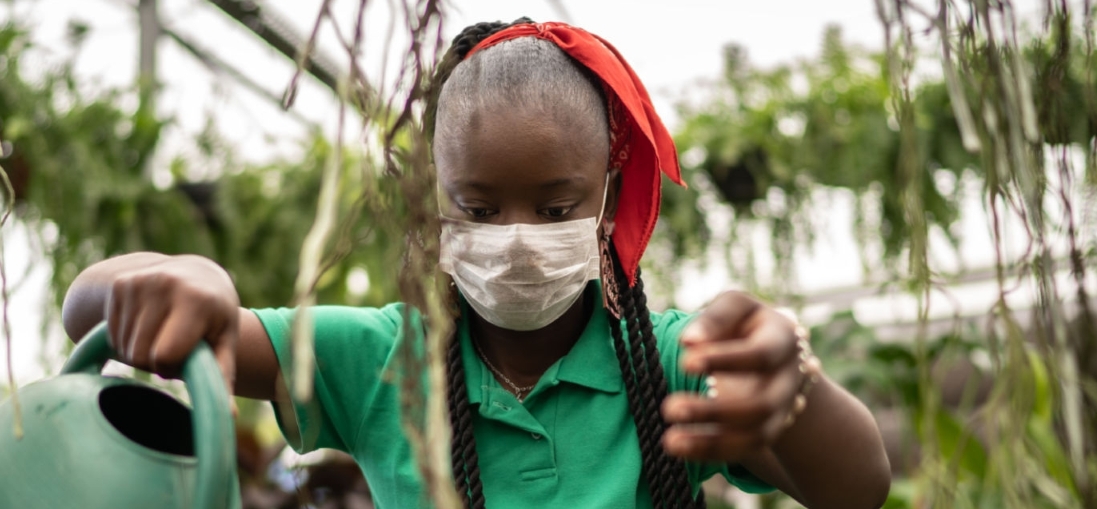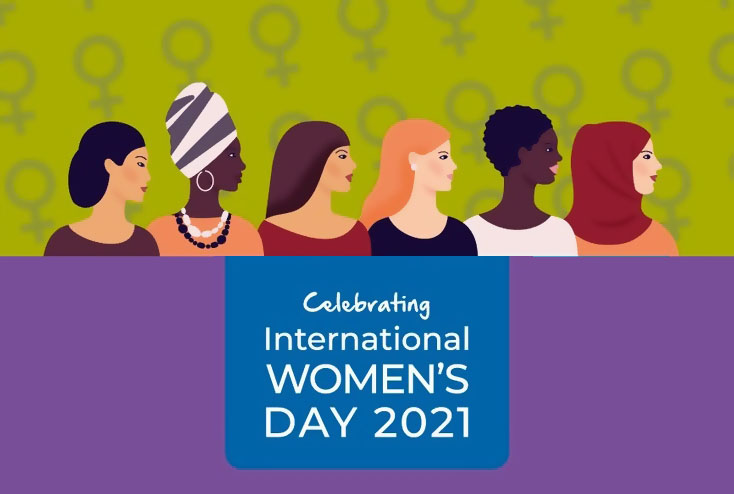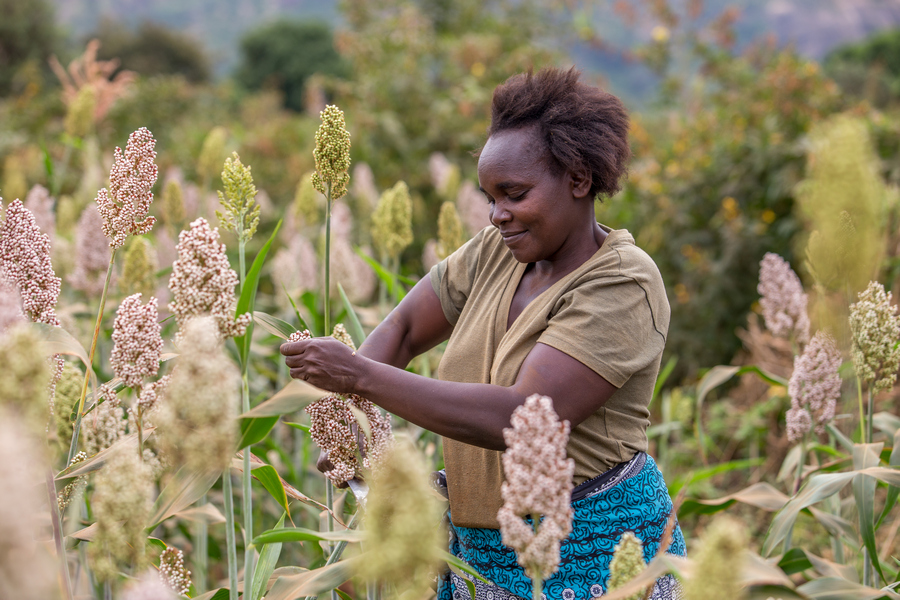WOMEN SMEs and COVID-19:AGRA Survey Report
Background
Women in agriculture continue to be disproportionately affected by measures being taken in Africa to curb the spread of the COVID-19. The pandemic is exacerbating existing structural economic, social, and technological inequalities that women face as they struggle to perform their multiple roles in society. These inequalities undermine women’s capacity to respond to and recover from the disruptions caused by COVID-19. The disruptions not only affect their livelihoods and agri-business enterprises, but also increase women’s workloads, threaten their families’ wellbeing, and increase incidences of gender-based violence.
Women are a key pillar in the continent’s food and agricultural systems. They constitute 50% of the agricultural workforce, own 1/3 of the small and medium enterprises (SME’s) that produce, process and trade in agricultural products and services. Therefore, it is crucial to design and implement responses that enhance their capacity to not only cope with the current effects but restore their businesses and build resilience to future shocks. To address their immediate needs, these responses ought to be designed with the women’s input and perspectives and sex/age data developed to monitor gendered impacts as well as inform the design of gendered interventions.
To get insights into how women are coping with COVID-19, AGRA conducted a voluntary online survey targeting women agri-SMEs. The study was conducted between June and July 2020.
Descriptions of the Sample or other Descriptions of Respondents
The survey respondents included 71 women aged 18 years and above, operating small and medium agribusiness enterprises (SME’s) across the four Sub-Sahara Africa regions. Most respondents were between 25 and 54 years of age. East Africa had the highest number of respondents at 54%, followed by Southern Africa (26.78%), and West Africa (18.31%). Central Africa (4.23%) accounted for the fewest respondents. The two-month survey, which comprised multiple-choice questions, was designed, and administered using the survey monkey online platform. While it may be argued that an online platform is inaccessible to women in SMEs, it was the fastest, cheapest, and safest method to use given the pandemic restrictions and directives.
Most of the women who responded were from SMEs producing crops and livestock (52.11%) and processing and distribution services (47.89%), with a few in commodity marketing and service provision. These businesses have a generally low annual turnover of between 50 and – 200K (USD) and it is not surprising that they have not existed for more than 5 years. Hence, 69% of the respondents are not members of any network or any industrial association.
Findings
The respondents reported access to markets (71.83%), access to finance (60.56%) and disruption of the supply chain (59.15%) as the three main constraints they are facing due to the pandemic. To a lesser extent, they also identified employee safety and management, access to labour, farm inputs and digital communication as additional constraints faced. These constraints can be attributed to the restrictions of movements and the overall economic challenges faced across sectors. As a coping strategy, 64.9% of the respondents are using social media platforms to market their products and 50.7% of them reduced their operational costs to keep their businesses afloat. Others have sought new marketing channels, formed new partnerships, engaged in new ventures or products, while 28.17% of the respondents have closed temporarily. The pandemic has not spared the SMEs’ supply chains either, with 78% of the respondents citing smallholder farmers or producers as being the most affected, followed by logistic service providers.
The respondents cited the loss of revenue, loss of customers, loss of workforce, standstill operations and closure of business as anticipated direct impacts of the pandemic on their businesses. Over 56.34% of them anticipatedhuge revenue loss of revenue that will require substantial financing to recover from.
Given the extensive anticipated and actual losses incurred, the respondents pointed to financial grants alone, or combined with commercial loans as the ideal financial solutions required to recover and restore their enterprises. They would invest the funds in production and operation expansion, market expansion, supply chain expansion, and developing workforce safety, with estimated recovery periods of up to 18 months.
The pandemic has increased women’s use of digital solutions, as a resilience measure. During the pandemic, 88.73% of the respondents had used or taken up digital solutions in their business operations. They found social media marketing, online communication, online trainings, and capacity building quite useful and would like to continue using these tools. Access to smart phones and internet connectivity, coupled with knowledge of digital tools and digital literacy are noted as key for recovery and building resilience to future shocks. Over 50% of the women respondents had either experienced gender-based violence or knew a woman who had experienced it. This is consistent with global reports on an increase of gender-based violence during lockdown.
Conclusions and Recommendations
Many women-owned SME’s have been heavily impacted by the pandemic; most are anticipating heavy losses as a result. Whereas most of them have taken up adaptation measures like using online platforms, these measures have been applied with little to no training, posing risks of sub-optimal utilization of the innovations for business recovery and resilience. It is therefore crucial to reinforce women’s SME’s knowledge and use of digital media and platforms to aid recovery and build resilience to future shocks.
Given that the majority of the SMEs engage in production activities, which is also the most affected part of the supply chain, it will be prudent to seek solutions that help to restore these businesses. Integrated measures that involve short term injection of flexible finance, training and bolstering the use of digital solutions will enhance recovery, and aid business resilience to future shocks. Further, any response mechanism should also include measures to increase awareness and reduce gender-based violence.
Gender and Age disaggregated data is crucial not only in providing insights into differential impact of COVID 19 on varied gender and socio groups, but also crucial in guiding recovery and resilience strategies. AGRA will work with partners to promote measures aimed at assisting the agriculture and food sector recovery while stimulating targeted responses to address disproportionate burden on women and other vulnerable populations.
About AGRA
AGRA is a farmer-centered, African-led, partnerships-driven institution that is working to transforming smallholder farming from a solitary struggle to survive to a business that thrives. In collaboration with its partners—including African governments, researchers, development partners, the private sector and civil society— AGRA’s work primarily focuses on smallholder farmers – men and women, who typically cultivate staple crops on two hectares or less. AGRA is a recognized voice for African rural development, a prosperous agricultural economy and a thriving entrepreneurial culture driven by African businesses and small holder farmers. AGRA aims to enhance food and nutrition security and improve rural livelihoods.
For more information please contact Ms. Sabdiyo Dido, Head of Gender and Inclusion, AGRA on sdido@agra.org
